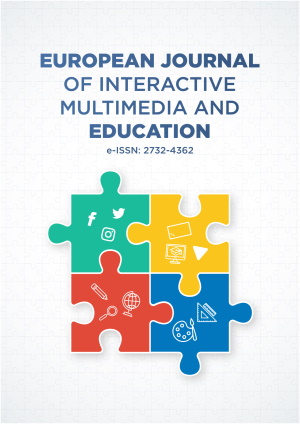Keyword: Pandemic
5 articles found.
Brief Report
Building a knowledge society during Japan’s coronavirus pandemic
EUR J INTERACT MULTIMED ED, Volume 4, Issue 1, January 2023, Article No: e02301
https://doi.org/10.30935/ejimed/12692Research Article
Perceptions Towards Adoption of Online Learning Under COVID-19 Pandemic Among Library and Information Science Students
EUR J INTERACT MULTIMED ED, Volume 3, Issue 2, July 2022, Article No: e02210
https://doi.org/10.30935/ejimed/12271Research Article
University Teachers’ Attitudes Towards Distance Learning During COVID-19 Pandemic: Hurdles, Challenges, and Take-away Lessons
EUR J INTERACT MULTIMED ED, Volume 3, Issue 1, January 2022, Article No: e02201
https://doi.org/10.30935/ejimed/11436Research Article
Factors Influencing Student’s Perceptions Towards E-Learning Adoption During COVID-19 Pandemic: A Developing Country Context
EUR J INTERACT MULTIMED ED, Volume 2, Issue 2, July 2021, Article No: e02109
https://doi.org/10.30935/ejimed/11000Research Article
Online News Media Framing of COVID-19 Pandemic: Probing the Initial Phases of the Disease Outbreak in International Media
EUR J INTERACT MULTIMED ED, Volume 1, Issue 2, July 2020, Article No: e02006
https://doi.org/10.30935/ejimed/8402
